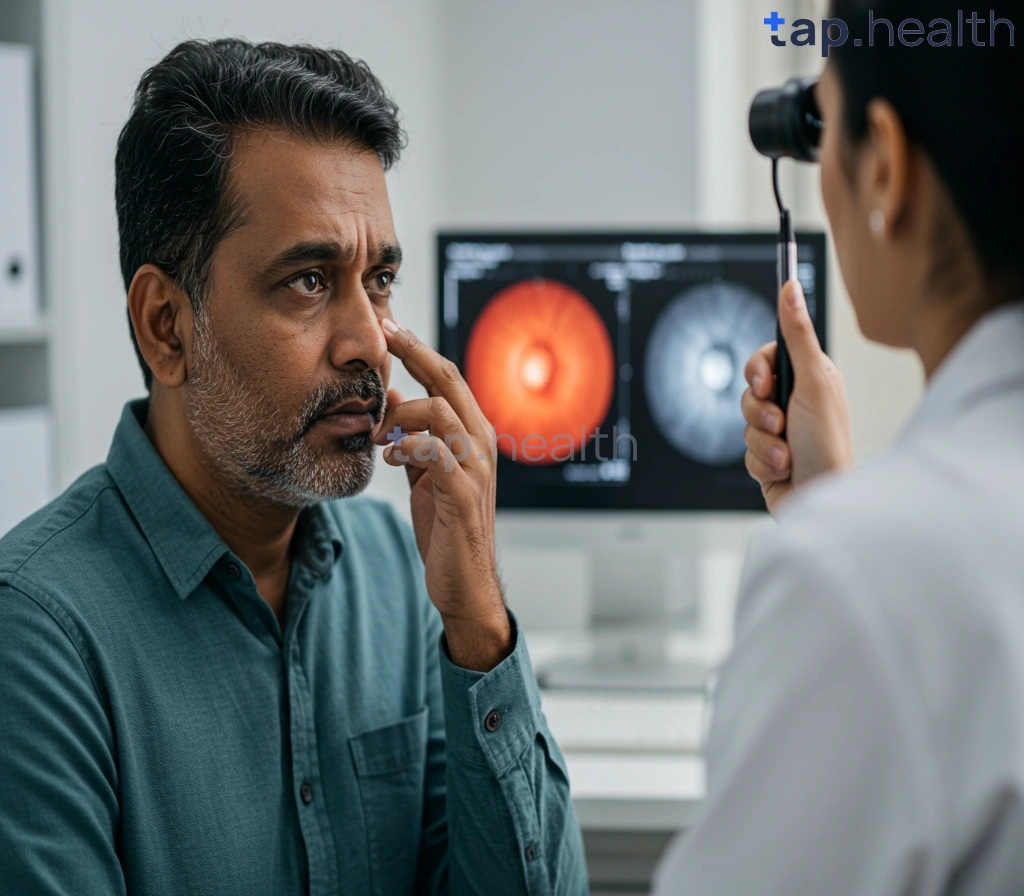Table of Contents
- Unlocking Personalized Diabetes Care: The Microbiome’s Impact
- The Gut-Diabetes Connection: How Microbiome Influences Treatment
- Personalized Diabetes Management: Tailoring Therapies to Your Microbiome
- Gut Microbiota and Diabetes: A New Frontier in Personalized Care
- Is Your Microbiome Affecting Your Diabetes? Discover Personalized Solutions
- Frequently Asked Questions
- References
Living with diabetes can feel like navigating a complex maze, but what if we told you there’s a hidden world within you that holds the key to better management? We’re talking about your microbiome – the trillions of bacteria, fungi, and viruses living in your gut. Recent research is revealing a fascinating connection between gut health and blood sugar control, paving the way for a revolution in personalized diabetes care. This blog post delves into the exciting possibilities of harnessing the power of your microbiome for more effective diabetes treatment, exploring how this tiny world could dramatically impact your future health. Let’s unlock the secrets of Personalized Diabetes Care: The Microbiome’s Role in Future Treatments.
Unlocking Personalized Diabetes Care: The Microbiome’s Impact
The staggering statistic that 50% of diabetes cases globally remain undiagnosed, as highlighted by the International Diabetes Federation, underscores the urgent need for improved diabetes management, particularly in India and other tropical countries. This necessitates a shift towards personalized care, and a key player in this revolution is the gut microbiome.
The Microbiome’s Role in Diabetes
The complex community of microorganisms residing in our gut, the microbiome, is increasingly recognized for its profound influence on our health, including diabetes. Research suggests a strong correlation between an imbalanced gut microbiome (dysbiosis) and the development and progression of both type 1 and type 2 diabetes. This imbalance can lead to increased inflammation, impaired glucose metabolism, and altered insulin sensitivity – all critical factors in diabetes.
Personalized Approaches in Tropical Climates
In India and other tropical regions, specific dietary habits and environmental factors might further complicate the interplay between the microbiome and diabetes. Personalized approaches, therefore, are crucial. This could involve analyzing an individual’s gut microbiome composition to identify potential dysbiosis and tailoring dietary interventions and lifestyle changes accordingly. For example, incorporating specific probiotics or prebiotics to restore microbial balance could become a key component of diabetes management. For more information on creating a personalized diabetes plan, see our article on Personalized Diabetes Control: Your Key to Better Health.
Actionable Steps for Better Health
Understanding your individual risk factors and seeking regular check-ups are vital steps. Moreover, adopting a balanced diet rich in fiber and fermented foods, common in many traditional Indian and tropical cuisines, can help promote a healthy gut microbiome. Consult your doctor or a registered dietitian to create a personalized plan that incorporates these strategies. Maintaining a strong immune system is also crucial, as detailed in our article on Boosting Immunity While Managing Diabetes. Early diagnosis and proactive management are essential for improved outcomes, particularly in high-risk populations.
The Gut-Diabetes Connection: How Microbiome Influences Treatment
The global economic burden of diabetes is staggering, costing a $760 billion annually. This highlights the urgent need for innovative and effective treatment strategies. A promising area of research focuses on the gut microbiome and its profound influence on diabetes management, particularly relevant in Indian and tropical countries where diabetes prevalence is high.
Understanding the Microbiome’s Role
The gut microbiome, a complex ecosystem of bacteria, fungi, and viruses residing in our intestines, plays a critical role in metabolic health. An imbalance, or dysbiosis, in this ecosystem is increasingly linked to the development and progression of type 2 diabetes. Specific microbial species can impact insulin sensitivity, glucose metabolism, and inflammation – all key factors in diabetes management. This is especially important in regions with diverse dietary habits and lifestyles, like India and other tropical nations.
Personalized Approaches to Diabetes Care
This understanding paves the way for personalized diabetes care. By analyzing an individual’s gut microbiome composition, doctors can identify potential risk factors and tailor treatment strategies accordingly. This could involve dietary modifications, prebiotic or probiotic supplementation, or even fecal microbiota transplantation (FMT) in specific cases. Such personalized approaches hold immense potential for improving diabetes management and reducing long-term complications, particularly in high-risk populations in India and across tropical regions. Early intervention and personalized strategies are key to mitigating the impact of diabetes. For more information on leveraging prebiotics and probiotics, see our related article: Enhance Gut Health and Manage Diabetes with Prebiotics and Probiotics.
Actionable Steps for Improved Health
Consider consulting a healthcare professional to discuss personalized approaches to diabetes management, especially if you reside in India or a tropical country. Focus on a balanced diet rich in fruits, vegetables, and fiber to support a healthy gut microbiome. To learn more about the impact of nutrition on gut health, read our blog: How Nutrition Impacts Gut Health and the Microbiome – Tap Health. Simple lifestyle changes can greatly impact your overall health and significantly reduce diabetes-related risks.
Personalized Diabetes Management: Tailoring Therapies to Your Microbiome
The global diabetes epidemic disproportionately affects individuals aged 20-64, comprising 61% of those living with the condition, according to the IDF Diabetes Atlas. In India and tropical countries, this demographic faces unique challenges, including limited access to advanced care and high rates of co-morbidities. Understanding the role of the gut microbiome in diabetes management is therefore crucial for developing effective, personalized therapies. The intricate interplay between gut bacteria and blood sugar regulation is increasingly recognized as a key factor in disease progression and response to treatment.
Unlocking Personalized Diabetes Care through Microbiome Analysis
Personalized diabetes management is moving beyond generic treatment plans. By analyzing an individual’s gut microbiome profile, clinicians can identify specific bacterial imbalances contributing to insulin resistance, inflammation, and other diabetes-related complications. This allows for targeted interventions, such as dietary modifications, prebiotic/probiotic supplementation, or even fecal microbiota transplantation (FMT) in severe cases, to restore a healthy gut ecosystem. For individuals in India and tropical countries, where dietary habits and environmental factors significantly influence gut microbiome composition, this personalized approach is particularly important. As we age, managing diabetes becomes even more complex; for insights into age-related challenges, see our article on Managing Diabetes as You Age: Challenges and Solutions.
Actionable Steps towards Personalized Diabetes Care
Individuals with diabetes in India and tropical countries can proactively improve their gut health through dietary changes. Focusing on a diet rich in fiber, fruits, and vegetables, while minimizing processed foods and sugar, is a crucial first step. Consulting a registered dietitian or healthcare professional specializing in diabetes and gut health is recommended to create a personalized nutrition plan. Further research is needed to understand the unique microbiome profiles of different populations within these regions and to develop culturally relevant, accessible interventions. Early intervention and personalized care, tailored to the individual’s unique microbiome, offer a promising path toward better diabetes management and improved long-term health outcomes. For additional tips on effective diabetes management, check out our guide: 10 Proven Tips for Effective Diabetes Management.
Gut Microbiota and Diabetes: A New Frontier in Personalized Care
The global rise in diabetes is alarming; the number of people living with this condition skyrocketed from 200 million in 1990 to a staggering 830 million in 2022 (WHO data). This dramatic increase underscores the urgent need for innovative treatment strategies, particularly in regions like India and other tropical countries where diabetes prevalence is high. Personalized medicine, focusing on the individual’s unique characteristics, offers a promising approach. One key area gaining traction is understanding the role of the gut microbiota in diabetes management.
The Microbiome’s Impact on Diabetes Management
The gut microbiome, a complex community of microorganisms residing in our intestines, plays a crucial role in various metabolic processes. Recent research strongly suggests a significant link between an imbalanced gut microbiome (dysbiosis) and the development and progression of type 2 diabetes. Dysbiosis can lead to impaired glucose metabolism, increased inflammation, and altered insulin sensitivity – all key factors contributing to diabetes. In tropical climates, with their diverse diets and environmental influences, understanding the unique microbial compositions is critical for developing effective interventions. Furthermore, exploring the connection between What’s the Connection Between Gut Health and Your Diet? can provide further insights into managing diabetes.
Personalized Approaches for Indian & Tropical Regions
The future of diabetes care in India and other tropical nations lies in personalized strategies that consider both genetic predisposition and the gut microbiome’s composition. This involves advanced diagnostic tools to analyze individual gut microbiota profiles, enabling the identification of specific microbial imbalances associated with diabetes risk. Therapies, such as targeted dietary modifications, prebiotic and probiotic supplementation, and even fecal microbiota transplantation (FMT), are being explored to restore microbial balance and improve diabetes management. Focusing on locally available, culturally relevant foods rich in prebiotics and probiotics will be essential for effective and sustainable interventions. The potential of How Can New Technological Advances Improve Diabetes Lifestyle? should also be considered in developing comprehensive strategies.
Taking Control of Your Diabetes Journey
Understanding the role of your gut microbiome is a powerful first step towards managing your diabetes more effectively. Consult with a healthcare professional to discuss personalized strategies tailored to your unique needs and regional context. Exploring dietary changes focused on regionally available fiber-rich foods and probiotics could significantly impact your health. Don’t hesitate to proactively engage in your diabetes care journey for a healthier future.
Is Your Microbiome Affecting Your Diabetes? Discover Personalized Solutions
Diabetes is a growing concern globally, particularly in India and other tropical countries. While genetics play a role, the gut microbiome—the trillions of bacteria, fungi, and viruses residing in your digestive tract—is increasingly recognized as a significant factor influencing diabetes management and even its development. A study shows that approximately 35 per 10,000 U.S. youths have diagnosed diabetes. Learn more about diabetes statistics. This highlights the importance of understanding this complex interplay, especially in vulnerable populations. The question of whether a virus or bacteria *causes* diabetes is complex, and further research is needed. For more insight, read our article: Is Diabetes Caused by a Virus or Bacteria?
Personalized Approaches to Diabetes Care
The composition of your gut microbiome can affect insulin sensitivity, inflammation, and blood sugar levels—all crucial aspects of diabetes. A healthy, diverse microbiome is associated with better diabetes management. Therefore, personalized approaches focusing on gut health are gaining traction. This includes dietary adjustments emphasizing fiber-rich foods common in Indian and tropical diets, such as lentils, vegetables, and fruits, to promote beneficial bacteria. Probiotics and prebiotics, which are often readily available in local markets, can further support a healthy microbiome.
Harnessing the Power of the Microbiome: Regional Insights
Traditional Indian and tropical diets often contain ingredients with prebiotic properties. However, modern lifestyles and processed foods can disrupt this balance. By understanding the unique microbial profile of individuals in these regions and tailoring interventions accordingly, we can achieve more effective diabetes management. Focusing on personalized nutrition and lifestyle choices is key to successful long-term diabetes management. The use of AI is also proving to be a valuable tool in managing diabetes effectively. Learn more about this at: How You Can Manage Diabetes Well with AI.
Taking Action for Better Health
It’s crucial to consult a healthcare professional for personalized advice regarding your microbiome and diabetes management. They can help you develop a plan that suits your individual needs and takes into account your cultural background and dietary preferences. Remember, a healthy microbiome is a critical component of overall well-being, especially in managing a condition like diabetes. Let’s work together to improve diabetes outcomes in our communities.
Frequently Asked Questions on Personalized Diabetes Care
Q1. What is the link between gut microbiome and diabetes?
An imbalance in the gut microbiome (gut dysbiosis) is strongly associated with both type 1 and type 2 diabetes. This imbalance affects glucose metabolism, increases inflammation, and reduces insulin sensitivity, all contributing to the development and progression of diabetes.
Q2. How can I personalize my diabetes care based on my microbiome?
Personalized diabetes care involves analyzing your individual gut microbiome composition to identify any imbalances. Based on this analysis, healthcare professionals can tailor interventions such as dietary changes (more fiber and fermented foods), probiotic/prebiotic supplements, and lifestyle modifications to improve your gut health and manage your diabetes.
Q3. What are the benefits of a personalized approach to diabetes care?
A personalized approach offers more effective diabetes management by addressing the root causes of the disease related to gut health. It leads to better glucose control, reduced inflammation, improved insulin sensitivity, and potentially slows disease progression.
Q4. What are some potential challenges or limitations of microbiome-based diabetes care?
Analyzing the gut microbiome can be complex and may require specialized testing. The effectiveness of microbiome-based interventions can vary between individuals, and more research is needed to fully understand the long-term effects and optimize personalized treatments. Access to testing and specialized care might also be limited for some.
Q5. How can I get started with personalized diabetes care?
Start by consulting your healthcare professional. They can assess your risk factors, discuss the possibility of microbiome testing, and help you create a personalized diabetes management plan that may include dietary changes, supplements, and lifestyle modifications. Early diagnosis and regular check-ups are key for effective management.
References
- A Practical Guide to Integrated Type 2 Diabetes Care: https://www.hse.ie/eng/services/list/2/primarycare/east-coast-diabetes-service/management-of-type-2-diabetes/diabetes-and-pregnancy/icgp-guide-to-integrated-type-2.pdf
- A Comprehensive Review of Modern Methods to Improve Diabetes Self-Care Management Systems: https://thesai.org/Downloads/Volume14No9/Paper_20-A_Comprehensive_Review_of_Modern_Methods_to_Improve_Diabetes.pdf




